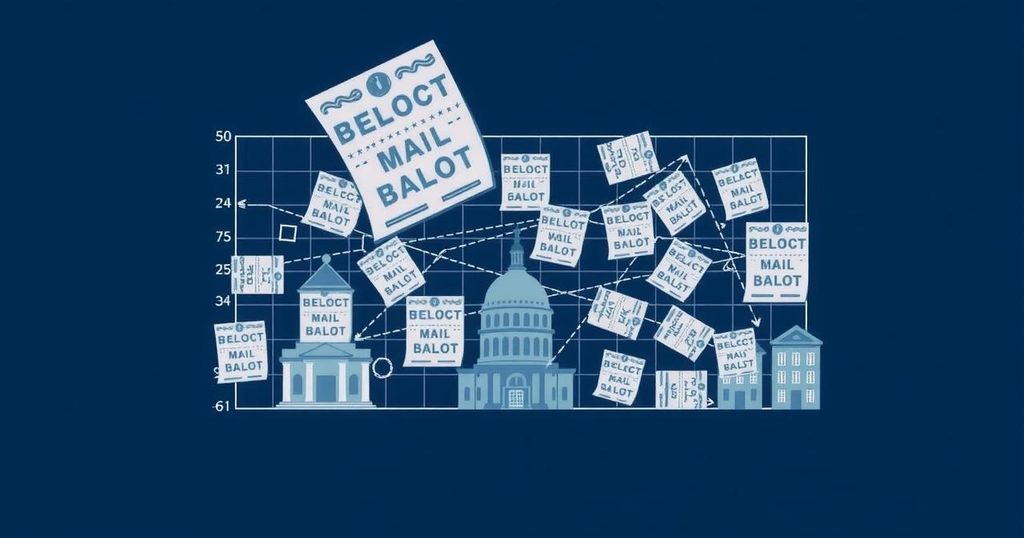Pennsylvania’s Mail Ballot Disputes Highlight Election Integrity Concerns

The recount in Pennsylvania’s Senate race highlights intense disputes over mail-in ballot rules, particularly regarding envelope date requirements. Republicans claim Democrats are attempting to manipulate ballots improperly, while Democrats argue voter rights are being jeopardized. Legal challenges may shape future voting regulations, defining which ballots can be counted. This episode exemplifies the ongoing national conversation about election integrity and access.
The ongoing recount in Pennsylvania’s United States Senate race illustrates the challenges posed by contested election protocols, as seen in the conflict between incumbent Democratic Senator Bob Casey and Republican David McCormick. This period has been characterized by extensive meetings, public outcry, and various legal disputes that reveal significant vulnerabilities in the electoral process. Republicans have recently claimed nefarious actions by Democrats, alleging attempts to invalidate ballots, while Democrats argue that Republican measures threaten to disenfranchise voters. A central contention in this debate pertains to the proper handling of mail-in ballot return envelopes. Republicans assert that ballots lacking appropriate dates on their envelopes should be invalidated per established state law, while Democrats argue that dismissing ballots for technical errors is excessive. This situation was exacerbated after the Pennsylvania Supreme Court reaffirmed a previous ruling banning the counting of such ballots, a directive that Democratic election boards in counties such as Montgomery and Philadelphia had started to disregard. The issue escalated following comments from Bucks County Commissioner Diane Ellis-Marseglia suggesting that violations of the law were necessary to attract legal scrutiny. Her statements ignited considerable backlash from Republican circles, further complicating the discourse surrounding election integrity. Republican officials have characterized these actions as subverting the electoral process, emphasizing the need for adherence to existing laws. The reaction to these disputes has drawn parallels to previous tensions observed in various states where local election officials have acted in ways perceived as partisan. This pattern prompts concerns about the potential for election boards to undermine public trust by selectively applying electoral rules. As the election’s recount proceeds, it is anticipated that subsequent legal resolutions will establish important precedents regarding mail-in ballot handling going forward, ensuring that the outcomes of future elections abide by a consistent standard.
Mail-in ballots have emerged as a contentious topic in American elections, particularly highlighted by Pennsylvania’s recent Senate race. The reliance on mail-in voting increased during the COVID-19 pandemic, prompting shifts in laws and regulations concerning their implementation and counting. Disputes over these ballots pose critical questions about election administration and the integrity of democratic processes. The nuances surrounding state laws and judicial rulings contribute to the complexity of managing mail-in ballots, fueling ongoing debates regarding voter access and election security. Also, previous experiences in other states, particularly during the 2020 presidential election, have intensified scrutiny over local election officials’ discretion in certifying votes, creating a landscape where confusion can easily arise during pivotal electoral moments.
The Pennsylvania mail ballot dispute encapsulates the broader national debate over election integrity and access to voting. As conflicting interpretations of election law emerge, the ramifications of such disputes highlight profound concerns regarding public confidence in electoral outcomes. With local election boards navigating the delicate balance of upholding the law while ensuring every vote counts, this recount serves as a critical juncture, potentially setting precedents for how mail-in ballots will be managed in future elections. It underscores the necessity for clarity in election regulations to safeguard democracy and voter trust.
Original Source: apnews.com







